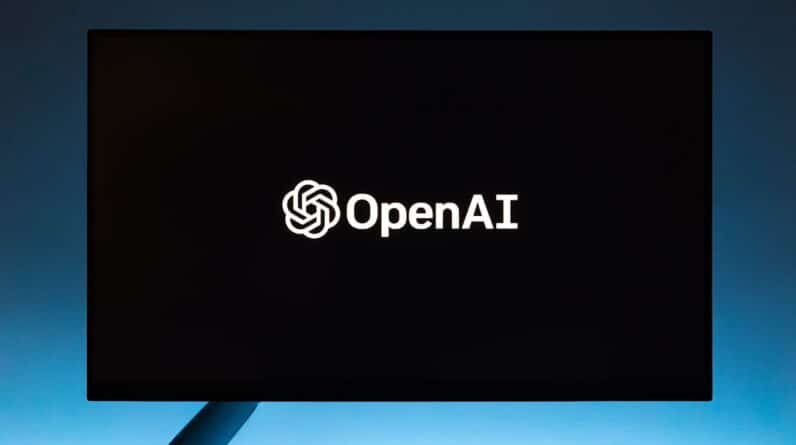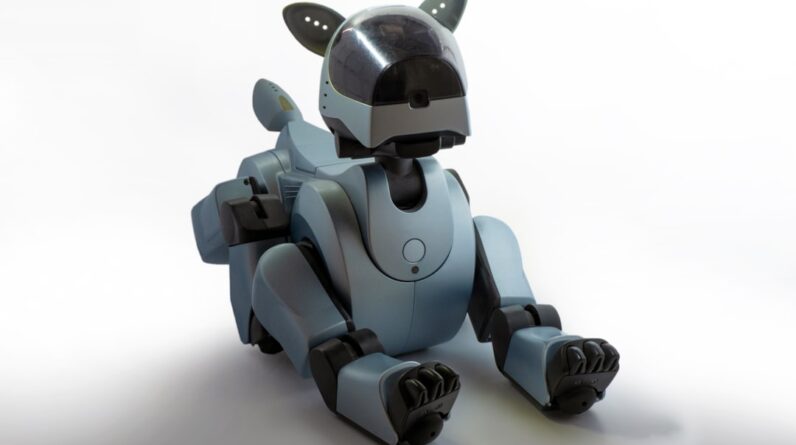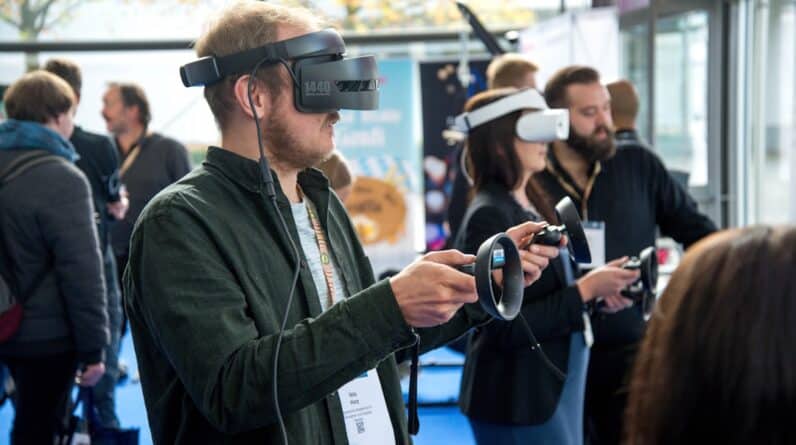As you step into the world of work today, you cannot ignore the profound influence that artificial intelligence (AI) is having on various industries. AI is not just a buzzword; it represents a seismic shift in how tasks are performed, decisions are made, and businesses operate. From automating mundane tasks to providing insights through data analysis, AI is reshaping the landscape of employment.
As you navigate this evolving terrain, it becomes essential to understand both the opportunities and challenges that AI presents for the future of work. The integration of AI into the workplace is not merely a trend; it is a fundamental transformation that is expected to accelerate in the coming years. You may find yourself in a job market where AI tools are commonplace, enhancing productivity and efficiency.
However, this transformation also raises critical questions about job security, the nature of work, and the skills required to thrive in an AI-driven environment. As you consider your career path, it is crucial to grasp how AI will influence your professional landscape and what steps you can take to adapt.
Key Takeaways
- AI is revolutionizing the future of work by automating tasks and creating new opportunities for innovation and efficiency.
- AI has the potential to create new jobs in fields such as data analysis, programming, and AI development.
- There is a threat that AI could replace human jobs, particularly in routine and repetitive tasks, leading to job displacement.
- Education and training are crucial in preparing the workforce to adapt to AI by developing skills that are complementary to AI technology.
- The ethical and social implications of AI in the workplace must be carefully considered, including issues of privacy, bias, and job displacement.
The Potential of AI to Create Jobs
While there is much discussion about AI’s potential to displace jobs, it is equally important to recognize its capacity to create new employment opportunities. As you delve deeper into the world of AI, you will discover that new technologies often lead to the emergence of entirely new industries and job roles. For instance, as businesses adopt AI solutions, they will require skilled professionals to develop, implement, and maintain these systems.
This demand for talent can lead to job creation in fields such as data science, machine learning engineering, and AI ethics. Moreover, AI can enhance existing roles by automating repetitive tasks, allowing you to focus on more complex and creative aspects of your job. For example, in healthcare, AI can assist doctors by analyzing patient data and suggesting treatment options, thereby freeing up time for healthcare professionals to engage more meaningfully with their patients.
This shift not only improves job satisfaction but also enhances the quality of service provided. As you consider your career trajectory, think about how you can position yourself in roles that leverage AI as a tool for innovation rather than viewing it solely as a threat.
The Threat of AI to Replace Human Jobs
Despite the potential for job creation, the fear of job displacement due to AI is a legitimate concern that you cannot overlook. Many industries are already experiencing significant changes as automation takes over tasks traditionally performed by humans. For instance, manufacturing has seen robots replace assembly line workers, while customer service roles are increasingly being filled by chatbots and virtual assistants.
As you observe these trends, it becomes clear that certain jobs may become obsolete as AI technologies continue to advance. The impact of AI on employment is not uniform across all sectors; some jobs are more vulnerable than others. Routine and repetitive tasks are particularly susceptible to automation, which means that roles requiring minimal human intervention may be at risk.
As you assess your own job security, consider whether your current role involves tasks that could easily be automated. This awareness can help you make informed decisions about your career development and the skills you need to acquire to remain relevant in an evolving job market.
The Role of Education and Training in Adapting to AI
In light of the rapid advancements in AI technology, education and training play a pivotal role in preparing you for the future of work. As traditional job roles evolve or become obsolete, acquiring new skills becomes essential for maintaining employability. You may find that investing in continuous learning—whether through formal education or online courses—can significantly enhance your career prospects.
Skills such as data analysis, programming, and critical thinking will be increasingly valuable as businesses seek individuals who can work alongside AI systems. Moreover, educational institutions are beginning to adapt their curricula to better align with the demands of an AI-driven workforce. You might encounter programs that emphasize interdisciplinary learning, combining technical skills with soft skills like communication and problem-solving.
This holistic approach ensures that you are not only equipped with the necessary technical knowledge but also prepared to collaborate effectively with both machines and humans in diverse work environments.
The Ethical and Social Implications of AI in the Workplace
As you explore the integration of AI into the workplace, it is crucial to consider the ethical and social implications that accompany this technology. The deployment of AI raises questions about privacy, bias, and accountability. For instance, algorithms used in hiring processes may inadvertently perpetuate existing biases if not carefully monitored.
As you engage with these issues, it becomes clear that ethical considerations must be at the forefront of AI development and implementation. Furthermore, the social implications of AI extend beyond individual workplaces; they encompass broader societal concerns such as economic inequality and access to technology. You may find yourself reflecting on how AI could exacerbate existing disparities if certain groups are left behind in this technological revolution.
Advocating for inclusive practices in AI development can help ensure that the benefits of this technology are shared equitably across society.
Strategies for Mitigating Job Displacement by AI
To address the challenges posed by AI-driven job displacement, proactive strategies must be implemented at both individual and organizational levels. As you consider your own career path, think about how you can diversify your skill set to remain adaptable in a changing job market. Emphasizing lifelong learning and staying informed about industry trends will empower you to pivot when necessary and seize new opportunities as they arise.
Organizations also have a role to play in mitigating job displacement caused by AI. By fostering a culture of continuous learning and providing training programs for employees, companies can help their workforce adapt to new technologies. You may find that organizations that prioritize employee development not only enhance job security but also cultivate a more engaged and innovative workforce.
Collaboration between employees and management is essential for navigating the challenges posed by AI while maximizing its potential benefits.
The Importance of Human-AI Collaboration in the Future of Work
As you look toward the future of work, it becomes increasingly clear that human-AI collaboration will be a defining characteristic of successful organizations. Rather than viewing AI as a replacement for human workers, consider how it can augment your capabilities and enhance productivity. In many cases, the most effective outcomes arise from a partnership between humans and machines—where each complements the other’s strengths.
For instance, in creative fields such as marketing or design, AI tools can analyze consumer behavior and generate insights that inform strategic decisions. However, it is your unique human perspective that brings creativity and emotional intelligence into the equation. Embracing this collaborative mindset will not only position you favorably in the job market but also enable you to contribute meaningfully to your organization’s success in an increasingly automated world.
Navigating the Future of Work in the Age of AI
As you navigate the complexities of the future workplace shaped by artificial intelligence, it is essential to remain adaptable and proactive. The landscape is evolving rapidly, presenting both challenges and opportunities that require careful consideration. By understanding the potential for job creation alongside the risks of displacement, you can make informed decisions about your career path.
Investing in education and training will be crucial for staying relevant in an ever-changing job market. Additionally, engaging with ethical considerations surrounding AI will ensure that you contribute positively to its development and implementation. Ultimately, embracing human-AI collaboration will empower you to thrive in this new era of work.
As you move forward, remember that while technology may change how we work, it is your unique skills and perspectives that will continue to drive innovation and success in the workplace of tomorrow.
In a recent article on AI and IoT: Synergies Between Artificial Intelligence and the Internet of Things, the discussion of how these two technologies can work together to shape the future of work is explored. As we consider the impact of AI on job creation and destruction, understanding how it can be integrated with IoT to enhance productivity and efficiency in the workplace becomes increasingly important. This article delves into the potential benefits and challenges of this integration, shedding light on the complex relationship between AI, IoT, and the future of work. For more insightful articles on AI and its implications, visit AILab360’s blog and explore the different types of AI technologies discussed in this informative piece.
FAQs
What is AI?
AI, or artificial intelligence, refers to the simulation of human intelligence processes by machines, especially computer systems. These processes include learning, reasoning, and self-correction.
How is AI impacting the future of work?
AI is expected to have a significant impact on the future of work by automating routine tasks, augmenting human capabilities, and creating new job opportunities in industries such as healthcare, education, and technology.
Are AI technologies job creators or job destroyers?
The impact of AI on jobs is complex and multifaceted. While AI has the potential to automate certain tasks and jobs, it also has the potential to create new job opportunities in AI development, data analysis, and other related fields.
What are some examples of AI technologies that are impacting the future of work?
Examples of AI technologies that are impacting the future of work include machine learning algorithms, natural language processing, robotic process automation, and autonomous vehicles.
How can individuals prepare for the impact of AI on the future of work?
Individuals can prepare for the impact of AI on the future of work by developing skills in areas such as data analysis, programming, and critical thinking, as well as by staying informed about the latest developments in AI and related technologies.






